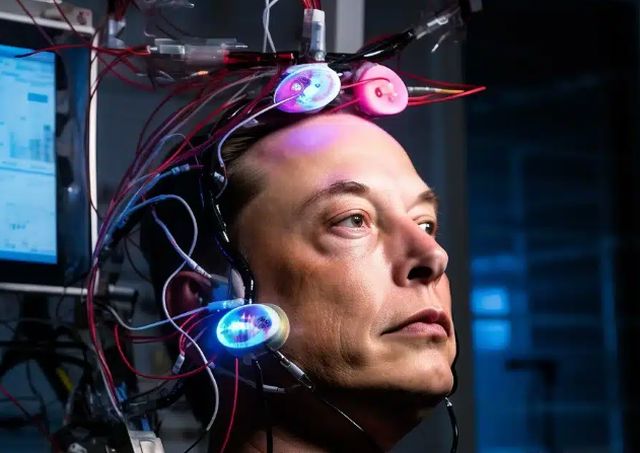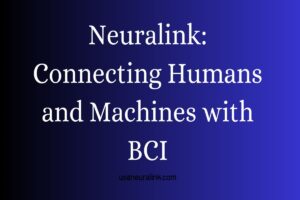Neuralink Brain Chip: A New Hope for Alzheimer’s Treatment?
Neuralink’s Brain Chip Technology: Revolutionizing Treatment for Alzheimer’s and Neurological Disorders
In a groundbreaking development for neuroscience and medical technology, Neuralink’s innovative brain-computer interface (BCI) is showing promising potential for treating Alzheimer’s disease and various neurological conditions. This cutting-edge technology, spearheaded by tech entrepreneur Elon Musk, could transform how we approach brain disorders and enhance human cognitive capabilities.
The Revolutionary Brain Chip Technology
Neuralink’s brain implant, roughly the size of a coin, represents a significant leap forward in BCI technology. The device consists of ultra-thin threads embedded with numerous electrodes capable of detecting and transmitting neural signals. Through advanced robotics and surgical techniques, these threads are precisely implanted into specific brain regions, establishing a direct communication channel between the human brain and external devices.

Milestone Achievement: First Human Implementation
In a historic moment in early 2024, Neuralink successfully implanted its first device in a human patient. This breakthrough followed the FDA’s approval for human clinical trials in May 2023, marking a crucial step forward in the company’s mission to address neurological disorders. The first recipient, a patient with paralysis below the shoulders, has already demonstrated remarkable progress, including the ability to play chess and engage in language learning activities.
Potential Impact on Alzheimer’s Disease
One of the most promising applications of Neuralink’s technology lies in its potential to address Alzheimer’s disease. The brain chip’s capabilities could revolutionize how we approach this devastating condition in several ways:
- Early Detection: The device’s ability to monitor neural activity in real-time could enable the identification of Alzheimer’s-related changes before significant symptoms appear
- Targeted Intervention: Through precise electrical stimulation, the technology might help maintain and strengthen neural connections affected by the disease
- Continuous Monitoring: Real-time tracking of brain activity could allow for more effective and personalized treatment approaches
- Cognitive Enhancement: The technology might help maintain or even improve memory and cognitive functions in early-stage patients
Beyond Alzheimer’s: Expanding Treatment Horizons
Neuralink’s applications extend far beyond Alzheimer’s treatment. The technology shows promise in addressing various neurological conditions:
Paralysis and Spinal Injuries
Clinical trials are demonstrating the potential for patients with paralysis to control external devices through thought alone, offering new hope for restored mobility and independence.
Mental Health Conditions
The technology could potentially revolutionize the treatment of conditions such as depression, anxiety, and schizophrenia through precise neural monitoring and modulation.
Neurological Disorders
Conditions like Parkinson’s disease and epilepsy might benefit from the device’s ability to monitor and regulate neural activity.
Ethical Considerations and Future Implications
While the potential benefits are significant, the development of brain-computer interfaces raises important ethical considerations:
- Data Privacy: Protecting sensitive neural information and ensuring secure transmission of brain signals
- Informed Consent: Establishing clear guidelines for patient participation, especially for those with cognitive impairments
- Access and Equity: Ensuring fair distribution of this revolutionary technology across different socioeconomic groups
- Long-term Effects: Studying the extended impact of brain implants on neural function and structure
Looking Ahead: The Future of Neural Technology
Neuralink’s vision extends beyond medical applications. The company’s long-term goals include enhancing human cognitive capabilities and enabling direct brain-to-computer communication. This could lead to unprecedented advancements in human-machine interaction and cognitive enhancement.
Conclusion
Neuralink’s brain chip technology represents a potentially transformative approach to treating neurological conditions, particularly Alzheimer’s disease. While challenges remain and ethical considerations must be carefully addressed, the successful human implementation and ongoing clinical trials suggest a promising future for this revolutionary technology.
As research continues and the technology evolves, Neuralink could fundamentally change our approach to neurological disorders, offering hope to millions affected by conditions that currently have limited treatment options. The journey from concept to clinical application demonstrates the rapid advancement of neurotechnology and its potential to reshape the future of medical treatment.
There is a Legal Notices page containing important legal information about this website. Please click here to read this page.
Share this content:






















Post Comment